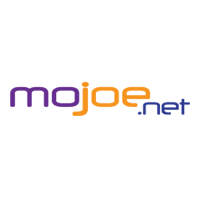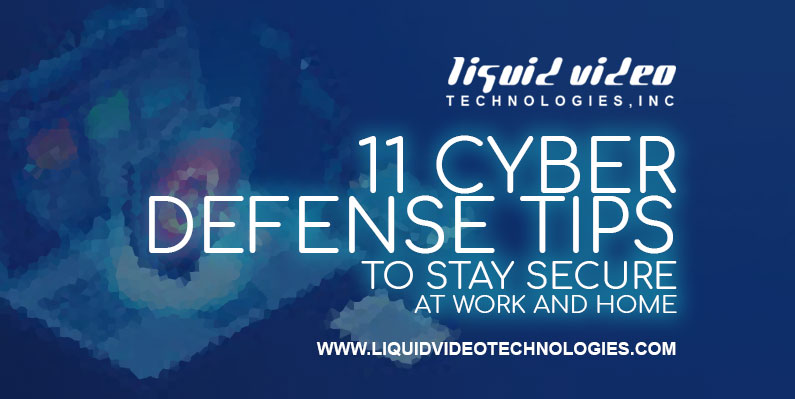Phishing attacks, ransomware, and digital theft are increasingly common in the modern-day world. If you’re not tech-savvy enough to defend yourself against these threats, you should know that there is a myriad of services and apps available in the cybersecurity field to help. This article will be taking a look at some of the most prevalent dangers out there and how they cause damage to your computer or mobile phone.
“Cybersecurity is essential today. When not used properly, social media accounts can provide an easy way for hackers to access your information, both personal and financial.”
– The Internet Crime Complaint Center
Security camera systems have been growing in popularity over the past decade, and are now installed in millions of households across the world. Unfortunately, there is one major downside to these devices: they are actually quite easy to hack into. This can be due to a poor choice of password or incorrect settings, which allows hackers to control the cameras remotely. The most common cameras that are vulnerable to hacking are those with a web interface. This can happen if you have just one camera on the network, and you have set it up with a password. Hackers can then enter the web page of your camera and access it directly, which can lead to a large number of security breaches if they get in. If your security system has multiple cameras, then setting them all up with different passwords is essential to avoid a breach, and this could be the end of your security nightmare. Smartphones and uniquely integrated computing devices have made life much easier for us, but how many of us are aware of the fact that they are also a prime target for hackers? After all, it’s through your phone that you get most of your notifications, and therefore it is the easiest way to access your personal information. The most common smartphone vulnerabilities include apps that share the information they collect with third parties, using incorrect security software, or simply not updating their operating systems and software. A malicious application can also infect your phone if you download it from a deceptive website. By having a number of different security apps on your phone, you are able to increase the security of your information and stay one step ahead of the hackers.
“Security is an investment rather than something that comes after the fact. You don’t get money back when you invest in improving or repairing your home or car; but with computer security, you do – and sometimes even before. Don’t delay; protect your PC with a well-chosen security program now.”
– Computer Hope
Cybersecurity has become an integral part of everyday life, and as such must be tackled in a professional manner. There are so many hacks and breaches that occur every day that it is essential to have a working knowledge of cybersecurity. In this article, I have aimed to take you through the basics of computer security, as well as some more complex topics that may be less familiar.
There are numerous risks and threats involved with the internet, and it is essential that you stay safe online. But how can you ensure that you are not falling victim to a hacker? A good place to start is by making sure that you have a strong password and that your anti-virus software is up to date.
The key to all security is awareness, and if people know what they’re doing then they are more likely to take action by following the advice given in this article.
The internet is a wonderful place, but it can sometimes be an uncomfortable one. When you use social media platforms such as Facebook and Twitter, you are exposing yourself to some of the biggest risks on the internet. This is why it is important to change your password on a regular basis so that hackers don’t have time to crack them. Do not always stick to the same password for all of your social media accounts so that your data is protected from hackers. If you use the same password for all your accounts and they are hacked, then hackers could gain access to your email and personal information. Sometimes it is possible to lock your social media account by following a certain link while signing into the app, but this can be a risk as it may leave you vulnerable if the hacker happens to have access to the app.
One of the biggest threats we face on the internet comes from malicious software or malware. There are many different types of malware, but they all share common characteristics. Some of the most common forms of malware include viruses, worms, Trojan horses, and spyware.
Viruses are small files that replicate themselves and simply sit in your computer’s memory waiting to invade when an unsuspecting user opens up a file. They can be avoided by not opening unknown or untrusted files and by using anti-virus software.
Worms are probably one of the most damaging viruses out there. Unlike viruses, which attack and replicate on their own, worms can spread a lot quicker because they self-replicate and look for an external drive to attach themselves to. If you are careful enough, then you may avoid most worms, but this requires a great deal of vigilance.
Trojan horses are another serious threat and are designed to destroy your system by tricking users into installing them. In most cases, they are designed to steal personal and financial information when they capture your account credentials.
Spyware and adware are similar in that both are designed to invade your computer in order to make money. Adware is installed on a computer in the hopes of advertising different products, while spyware is designed to silently monitor what you do on the computer.
There are many ways that you could be hacked or liable to cybersecurity attacks. So get protected before you get hacked. Don’t know where to start? Mojoe.net can help with cybersecurity protection and other essential web services.

If you would like to discuss Your Website’s SEO with Mojoe.net or your website’s analytics, custom logo designs, graphic design, social media, website, web application, need custom programming, or IT consultant, please do not hesitate to call us at 864-859-9848 or you can email us at dwerne@mojoe.net.


Recent Comments